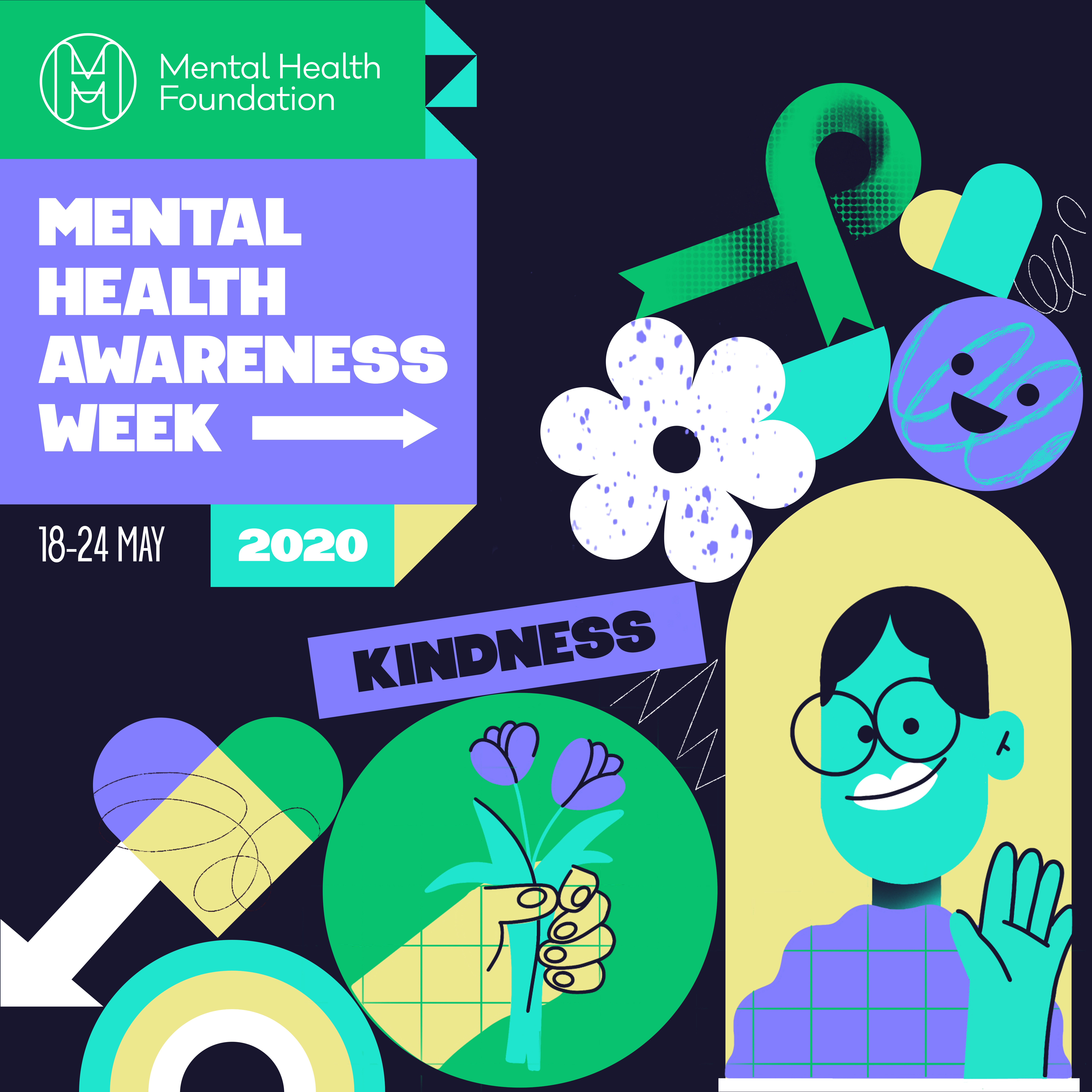Mental health awareness week is 18-24th May this year and the theme is Kindness. Over the next few weeks Futureworks will be raising awareness of Mental Health.
Today's post will be focusing on OCD, understanding what OCD is, what are the symptoms and how does it affect people? These posts are to raise awareness about mental health conditions and for you to gain an understanding of what you or others may be going through.
If you have any questions about these posts or would like to talk to somebody about your own mental health please contact: support@futureworks.ac.uk
OCD is Obsessive Compulsive Disorder and is described as a severe anxiety disorder. The condition has two main parts; obsession and compulsion.
Obessions
Obsessions are unwelcome thoughts, images, urges or doubts that repeatedly appear e.g:
- Thinking that you have been contaminated by dirt or germs
- Intrusive thoughts of passing a virus to a loved one
- COVID-19 and OCD
Compulsions are repetitive activities that you feel like you have to do e.g.:
- Repeatedly wash your hands
- Repeatedly check any locked doors or windows
Understanding OCD booklet
Impact of OCD
OCD can affect people in different ways. OCD can have a devastating impact on people's lives but OCD is treatable. OCD can be so severe that it can seriously impact on some or all areas of a persons life e.g.:
Some people also have devastating effects including:
Some people may spend much of their day carrying out various compulsions and be unable to get out of the house or manage normal activities. Others may appear to be coping with day-to-day life while still suffering a huge amount of distress from obsessive thoughts. Some people with OCD may carry out their rituals and compulsions in secret or make excuses to avoid social interaction so they can complete compulsions. It can be particularly difficult for families when the person with OCD has poor insight into the disorder. In these cases the person will have difficulty recognising that their concerns are excessive, that they may have OCD, or indeed that they may need help.
Types of OCD
There are infinite types of OCD, below are some of the most common manifestations of OCD:
Click here for more info on these where they provide examples of each bullet point.
What causes OCD?
There are plenty of theories surrounding potential causes of OCD involving one of or a combination of either; neurobiological, genetic, learned behaviours, pregnancy, environmental factors or specific events that trigger the disorder in a specific individual at a particular point in time.
Treatment for OCD
OCD is treatable and the two main methods of treatment are Cognitive Behavioural Therapy (CBT) and medication. See here for more treatment info
Support groups for OCD
OCD Facsheet
OCD at university
What can you do to help yourself during COVID-19
Fighting OCD during the COVID-19 Crisis
Assessment & diagnosis of OCD
BDD self help resources
Complusive skin picking
Habit disorders
Perinatal OCD
Supporting a person with OCD
How to tell a loved one about your OCD
Talking to someone about getting help
Recovering from OCD
Who to contact?
![]()
"The national OCD charity, run by and for people with lived experience of OCD"
![]()
"We provide support and information to anybody affected by OCD, work to raise awareness of the disorder amongst the public and front-line healthcare workers, and strive to secure a better deal for people with OCD"
- Youth Access - Advice & Counselling
- Young Minds Crisis Messenger provides free 24/7 crisis support. Text YM to 85258
- Samaritans - Call free on 116 123 (24 hours a day)
- Childline - If you are under 19 you can confidentially call, email or talk online about any problem you may be having
Helpline: 0800 1111 - The Mix - If you are under 25 you can contact them free via phone, online chat or email
Helpline: 0808 808 4994 (1pm-11pm daily) - 42nd Street - 0161 228 732. They provide online support and they also do referrals. On their website, it states “if you are struggling with your mental health and would like to speak with a mental health practitioner call us Monday – Friday 9.30-5 and ask to speak to a duty practitioner on 0161 228 7321.
- CALM - (Campaign Against Living Miserably) 0800 58 58 58 (5pm-midnight 365 days a year) or online webchat
- Shout - Text SHOUT to 85258 (24 hour text service)
- SANE emotional support, guidance and information to anyone affected by mental illness, including families, friends and carers.
0300 304 7000 (Helpline open 4.30pm-10.30pm). - Depression UK
In crisis? Call 999 if you are in serious distress or in danger of harming yourself or others. Alternatively:
- Go to A&E at your local hospital. The nearest to Futureworks is Manchester Royal Infirmary (0161 276 4147)
- Contact your GP / 111
- Call Samaritans 116 123 (free to call, 24 hours a day, 365 days a year)
- See below for other contact details that maybe beneficial for you, family or friends.
24/7 mental health helpline for Greater Manchester: 01204 4830
New 24/7 mental health for carers and service users who are currently engaged with the GMMH service - Greater Manchester: 01204 483 071
New 24/7 mental health crisis line for people of all ages in Halton, Knowsley, St Helens & Warrington: 01925 275 309
New 24/7 crisis line for people of all ages in Wigan: 01942 636 395
What other services are local to me?

